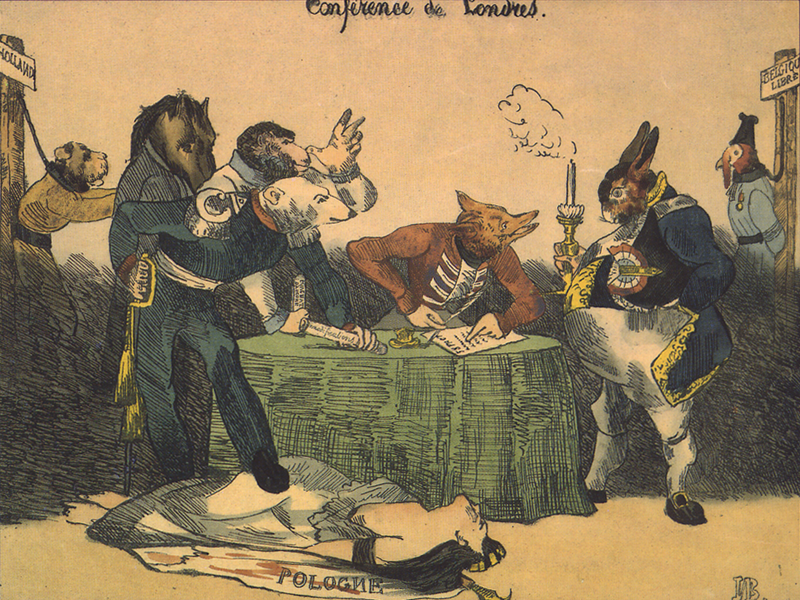London Conference of 1830 on:
[Wikipedia]
[Google]
[Amazon]
 The London Conference of 1830 brought together representatives of the five major European powers Austria, Britain, France, Prussia and Russia. At the conference, which began on 20 December, they recognized the success of the Belgian secession from the
The London Conference of 1830 brought together representatives of the five major European powers Austria, Britain, France, Prussia and Russia. At the conference, which began on 20 December, they recognized the success of the Belgian secession from the
Neutrality of Belgium
{{Belgian Revolution of 1830
 The London Conference of 1830 brought together representatives of the five major European powers Austria, Britain, France, Prussia and Russia. At the conference, which began on 20 December, they recognized the success of the Belgian secession from the
The London Conference of 1830 brought together representatives of the five major European powers Austria, Britain, France, Prussia and Russia. At the conference, which began on 20 December, they recognized the success of the Belgian secession from the United Kingdom of the Netherlands
The United Kingdom of the Netherlands ( nl, Verenigd Koninkrijk der Nederlanden; french: Royaume uni des Pays-Bas) is the unofficial name given to the Kingdom of the Netherlands as it existed between 1815 and 1839. The United Netherlands was cr ...
and permanently guaranteed Belgian independence.
Dutch response
The Dutch were strongly opposed to Belgian independence, launching an (unsuccessful) invasion in 1831. Not until 1839 did the Dutch accept the decision of the London conference and recognize Belgian independence.Winners and losers
Fishman says that the London Conference was "an extraordinarily successful conference" because it "provided the institutional framework through which the leading powers of the time safeguarded the peace of Europe".G. M. Trevelyan
George Macaulay Trevelyan (16 February 1876 – 21 July 1962) was a British historian and academic. He was a Fellow of Trinity College, Cambridge, from 1898 to 1903. He then spent more than twenty years as a full-time author. He returned to the ...
from a British standpoint called it "one of the most beneficent and difficult feats ever accomplished by our diplomacy"; while the French too saw their goal of an independent Belgium, which was peacefully accepted by the other Great Powers, as being achieved.
However, historians of both Belgium and the Netherlands have largely ignored it. Dutch historians see it as their nadir in the 19th century, for the loss of the southern territories shook the nation's confidence. Belgian historians see the result not as a victory, says Fishman, but as a frustrating and humiliating experience, involving the loss of territory in Luxemburg and Limburg under the settlement terms, in which the great powers allowed Belgium to come into existence.
Aftermath
In 1914, Germany rejected the guarantee of Belgian neutrality as a "scrap of paper", and invaded Belgium. Britain responded by declaring war.See also
*History of Belgium
The history of Belgium extends before the founding of the modern state of that name in 1830, and is intertwined with those of its neighbors: the Netherlands, Germany, France and Luxembourg. For most of its history, what is now Belgium was either ...
*Treaty of the Eighteen Articles
The Treaty of the Eighteen Articles was a proposal for a treaty between Belgium and the Netherlands to establish borders between the two countries.
The initial proposal was finalised in London on 26 June 1831.
Background
The Belgian Revolution ...
Notes
Further reading
* * * * * Rendall, Matthew. "A Qualified Success for Collective Security: The Concert of Europe and the Belgian Crisis, 1831." ''Diplomacy and Statecraft'' 18.2 (2007): 271–295. * *External links
Neutrality of Belgium
{{Belgian Revolution of 1830
London
London is the capital and List of urban areas in the United Kingdom, largest city of England and the United Kingdom, with a population of just under 9 million. It stands on the River Thames in south-east England at the head of a estuary dow ...
1830 in Belgium
1830 in the Netherlands
Separatism in Belgium
Separatism in the Netherlands
1830 in England
1830 conferences
Conferences in London
19th-century diplomatic conferences